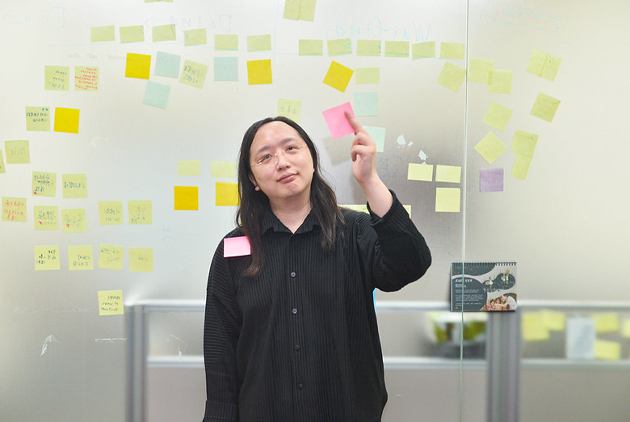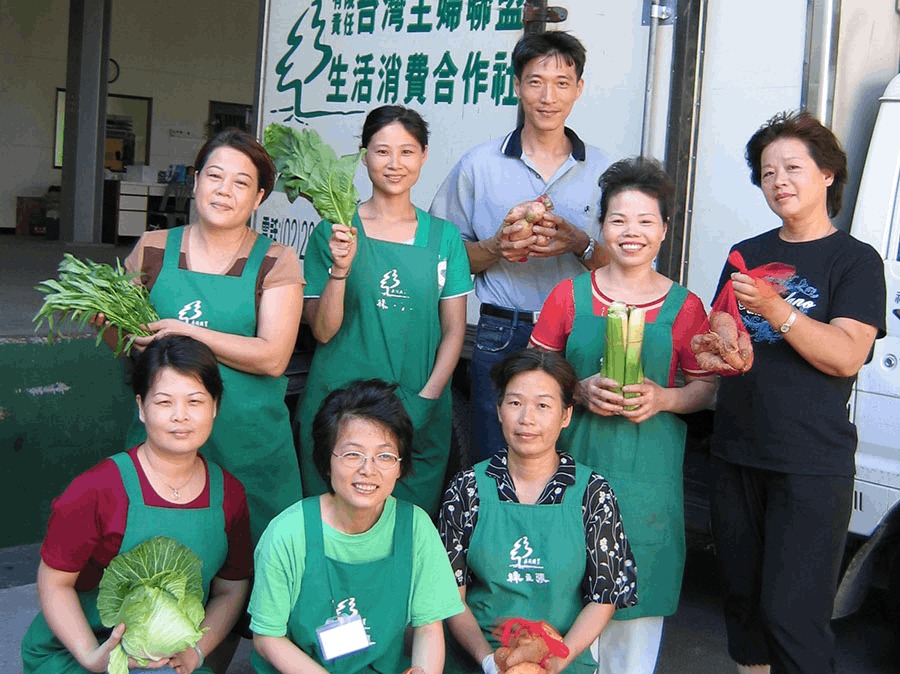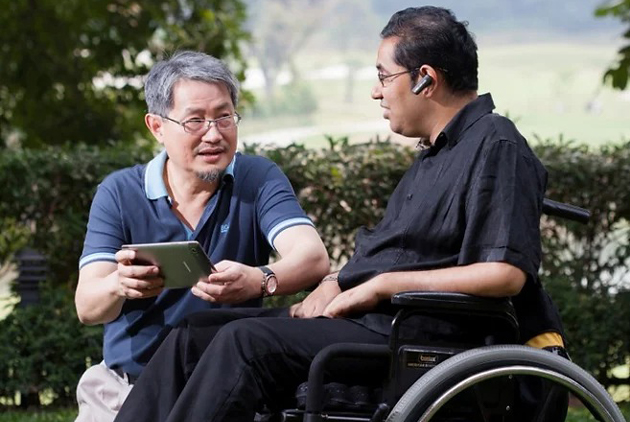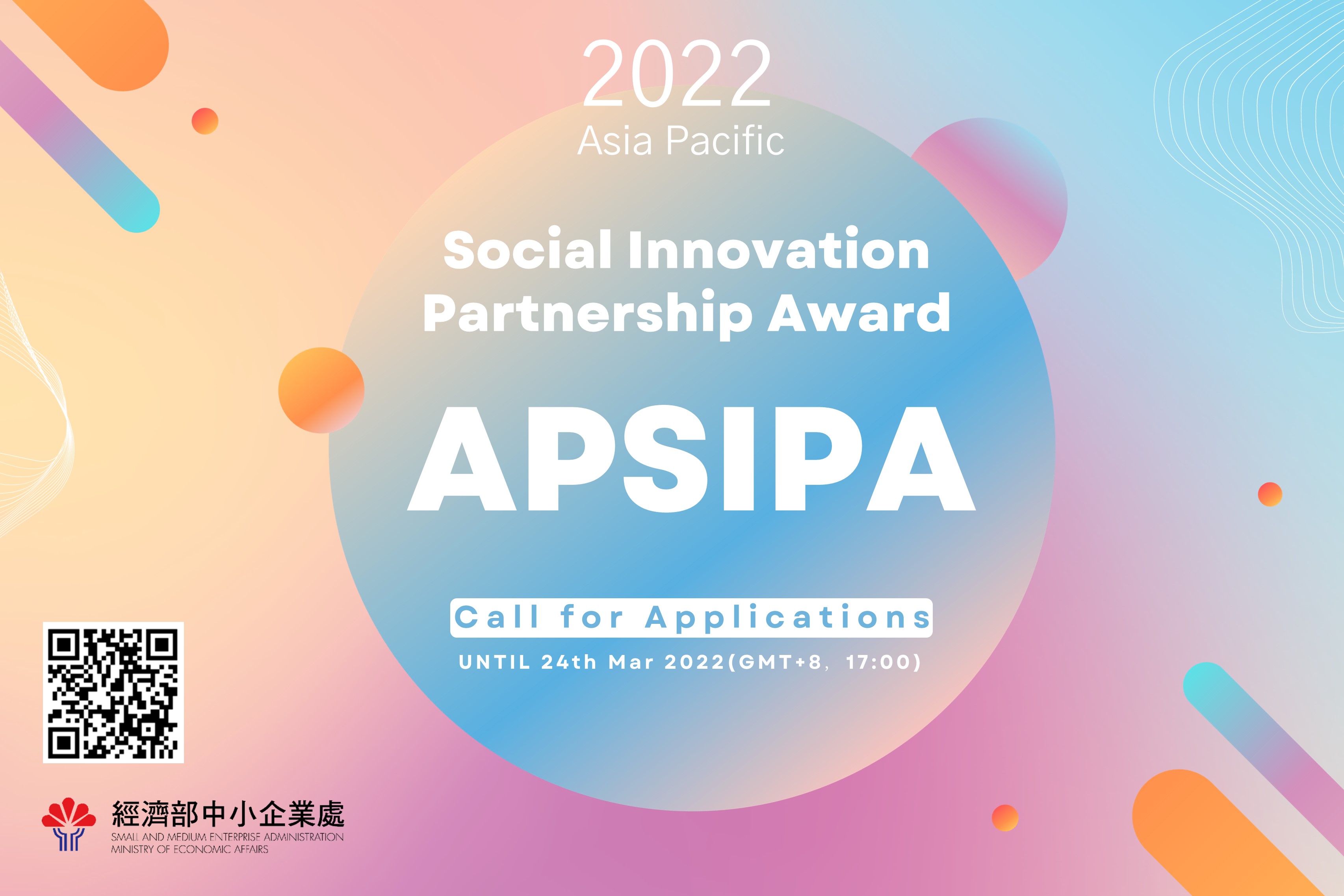APSIPA: Changing Society for the Better

Source:Audrey Tang
The pandemic has significantly impacted our industry and lifestyles. But at the same time, there are many innovative social ideas emerging in Taiwan. How can these ideas improve our lives?
Views
APSIPA: Changing Society for the Better
By Audrey Tangweb only
The pandemic has significantly impacted our industry and lifestyles. But at the same time, I’ve witnessed a slew of innovative and effective social ideas emerge in Taiwan. Many people, who are both enthusiastic and practical, have dedicated their lives to resolving social and environmental issues. For example, the mask map created by the Taiwan civic community and government, as well as the low-interest impact loans granted by banks to the economically challenged, all demonstrate that current tools and technology have endless potential.
There are also several social innovations being developed on a global scale. The Asia-Pacific Social Innovation Partnership Award continues to attract ground-breaking projects while exploring new solutions to related issues worthy of international recognition. Since APSIPA’s launch in 2019, it has brought together 19 of the world’s premier international social innovation organizations to study 250 collaboration ideas in more than 20 Asia-Pacific nations. As the jury convener for many years, I’ve established many amazing relationships along the road.
For example, in 2021, a cooperative-type social innovation organization received the prize for the first time–Taiwan’s Homemakers Union Consumers Co-op. Starting with the issue of cutting food waste, the Homemakers Union collaborates with producers to make the greatest use of food in the manufacturing process. For example, the black bean material used to ferment soy sauce is turned into bean paste, and the leftovers of poultry are transformed into soup stock.The notion of full use of food resources reduces waste in the manufacturing and marketing processes. This strategy adheres to the notion of friendly manufacturing and sales, as well as converts trash into sustainable treasure.
 (Source: Homemakers Union Consumers Co-op's website)
(Source: Homemakers Union Consumers Co-op's website)
Several organizations discovered new opportunities by aggressively using digital channels during the pandemic. For example, by connecting with Hong Kong’s local e-commerce platform HOME+, the Hong Kong social enterprise product e-commerce platform WE+ Social Ventures Marketplace promoted responsible consumption. By eliminating physical barriers via digital channels, WE+ assisted social entrepreneurs earn income through multiple channels. It further demonstrated how multilateral cooperation can build a support system during the pandemic. Currently, about 20 brands have been launched.The WE+ Social Ventures Marketplace idea is similar to the Buying Power flagship shop, which was built to support the introduction of social innovation goods and services in collaboration with the Small and Medium Enterprises Administration under Taiwan’s Ministry of Economic Affairs and PChome.
Another group making good use of the digital spirit is Genashtim, a Singapore-based social innovation organization that won the Economic Co-Prosperity Award last year. It's inventor, Thomas Ng, discovered that, even with sufficient training, career chances for persons with disabilities are sometimes jeopardized by employers’ stereotyped perceptions or work environment circumstances. As a result, Thomas vowed to turn things around by modifying company strategies and honing digital abilities. Genashtim provides long-term work prospects for physically or intellectually challenged and underprivileged populations, as well as online learning and technical aid. As of 2021, it employs around 120 people in more than 10 locations around the globe.
 (Source: Genashtim's website)
(Source: Genashtim's website)
Being an online outfit, Genashtim able to allow staffers to work remotely, resulting in a varied workforce including those particularly vulnerable in the employment market such as persons with impairments, Middle Eastern refugees, and HIV positive individuals. It exemplifies how social innovation fosters inclusion.
This year’s APSIPA is a little bit special in that the Jury Award has is themed “Human-Oriented” to urge teams to refocus on people. This is due to the fact that since the emergence of COVID-19, people have had to deal with new patterns, resulting in increased tension and worry. As a result, APSIPA aims to inspire a wide range of innovative approaches to promoting human physical and mental health in the current long-distance and zero-contact lifestyle.

According to Bill Drayton, founder of the nonprofit social venture capital Ashoka Foundation, “social innovators would not be content to just offer a fish or teach others how to fish; they are not going to rest until they revolutionize the fishing industry.” Applications for the 2022 APSIPA are open until March 24. I invite Asia-Pacific social innovation partners to share new approaches and join in changing society for the better.
About the author:

Audrey Tang is Taiwan's first Digital Minister. She plays a key role in combating foreign disinformation campaigns & in formulating Taiwan's COVID-19 digital response. She is one of the key people championing the Taiwan Model.
Have you read?
♦ Digital democracy with the people
♦ Spurring summit for democracy progress
♦ 1922 Vaccine Appointment System
Uploaded by Penny Chiang






